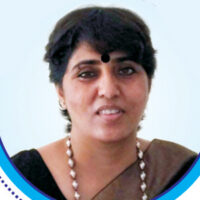Impact Stories
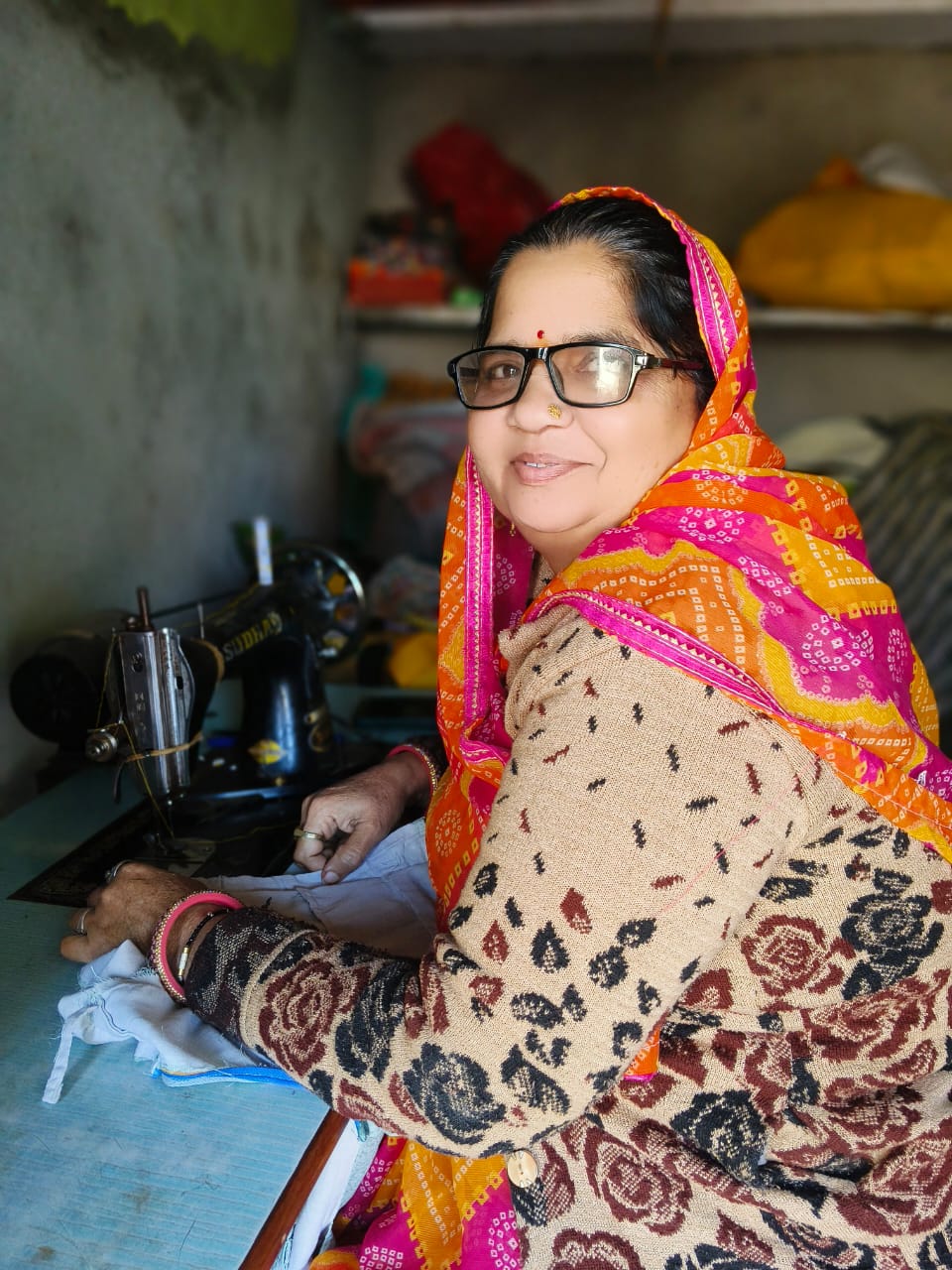
Sewing a New Life from the Remnants of Grief
Sometimes, life unravels when we least expect it. For Mrs. Santosh Devi Kansara, that moment came with the sudden, quiet departure of her husband, the late Mr. Rameshchandra Kansara. In an instant, the world she....
Click Here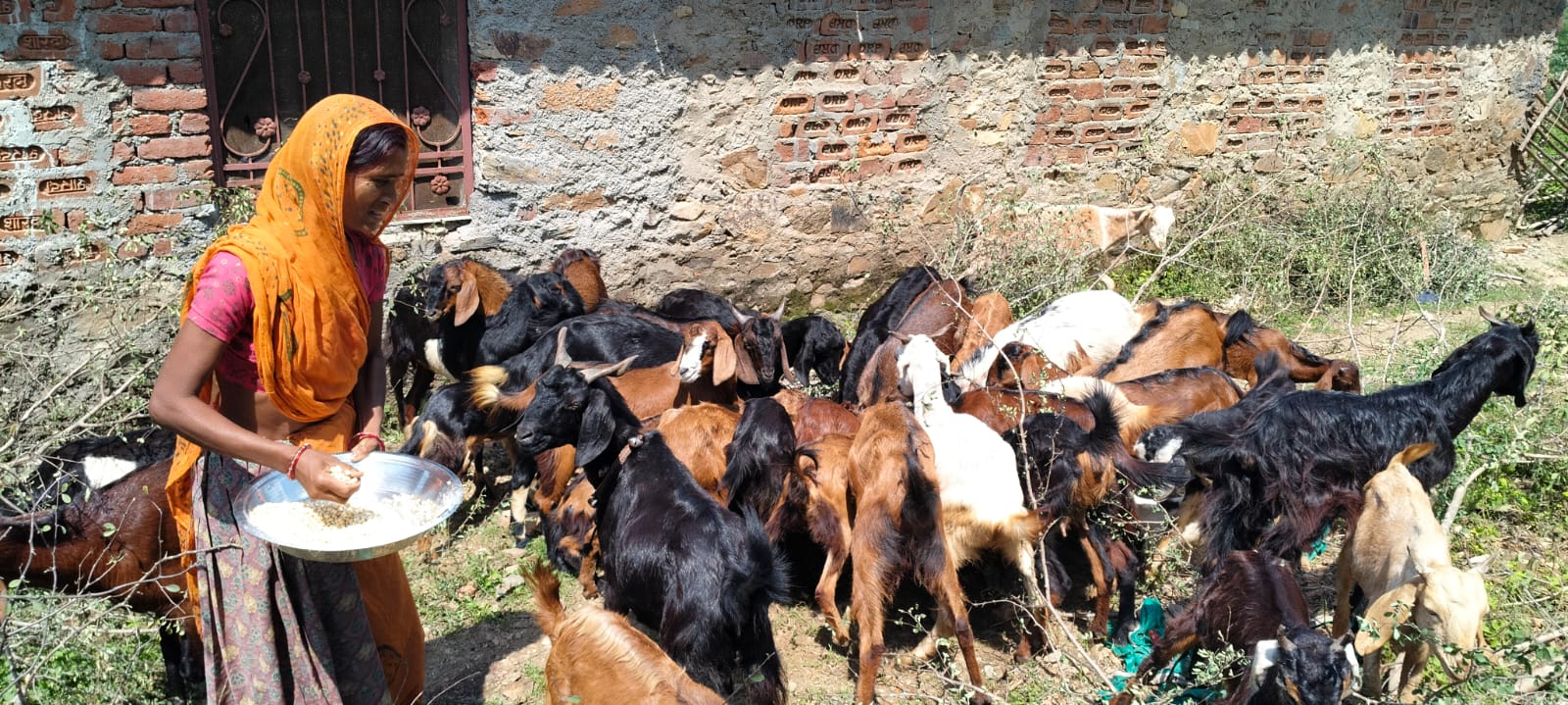
From Humble Beginnings to Prosperity: The Inspiring Journey of Mohini Didi
In a world where big dreams and small beginnings often collide, Mohini Didi's story stands out as a beacon of hope and determination....
Click Here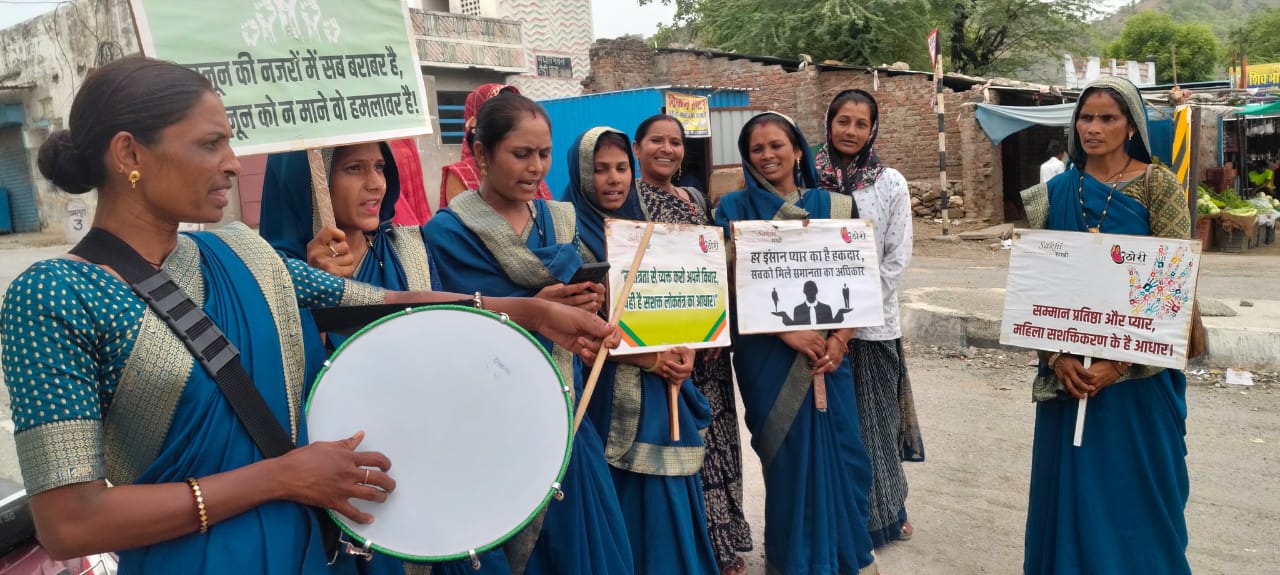
Taking Center Stage: How Rural Women Are Using Theatre to Drive Social Change
Click Here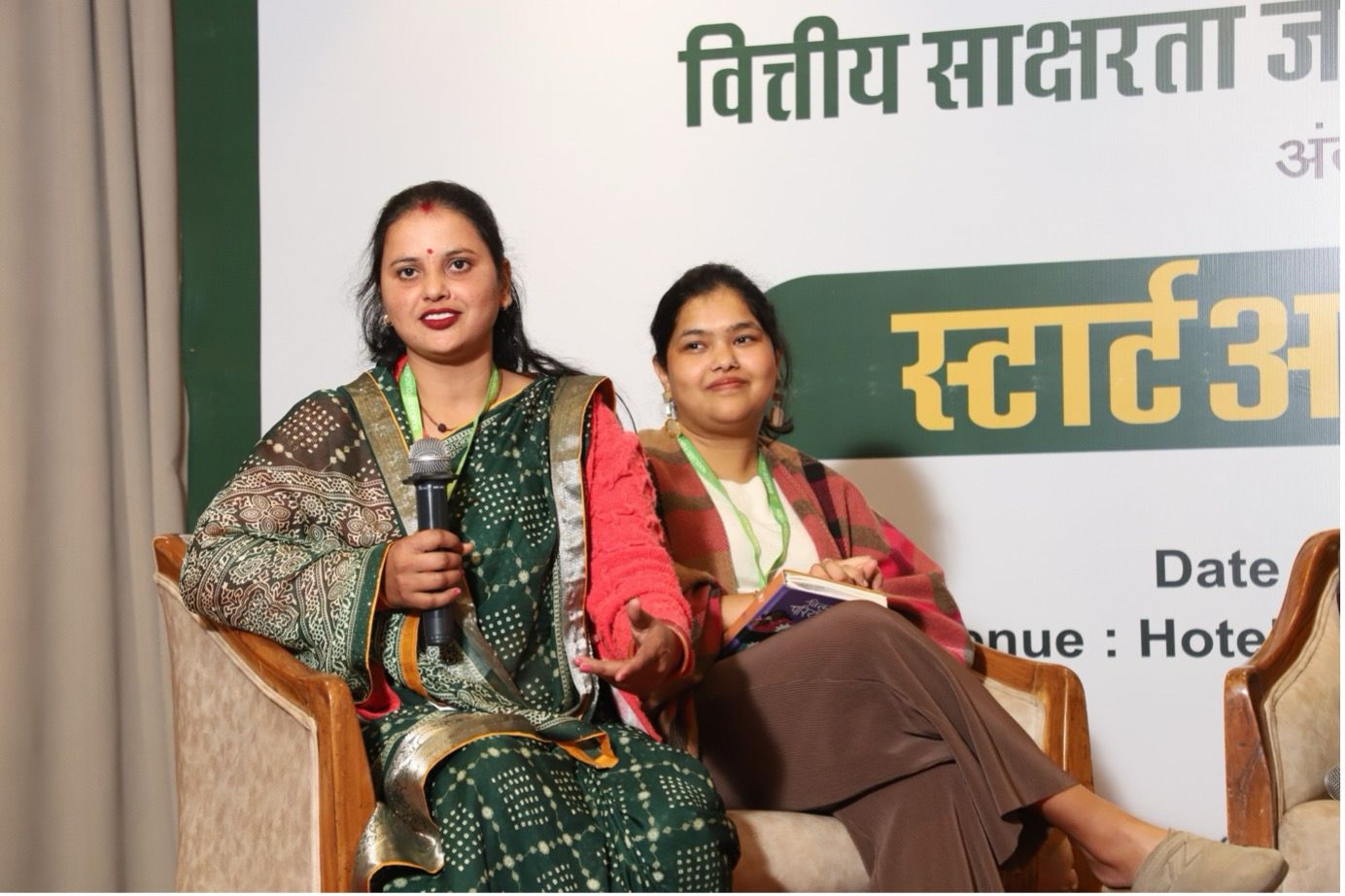
From Fields to Financial Freedom: How Rural Women are Rewriting Their Futures
These small moments weave into a bigger story of empowerment, resilience, and hope. The Ripple Effect of Economic Independence. The UN Women Fund is one such catalyst.
Click Here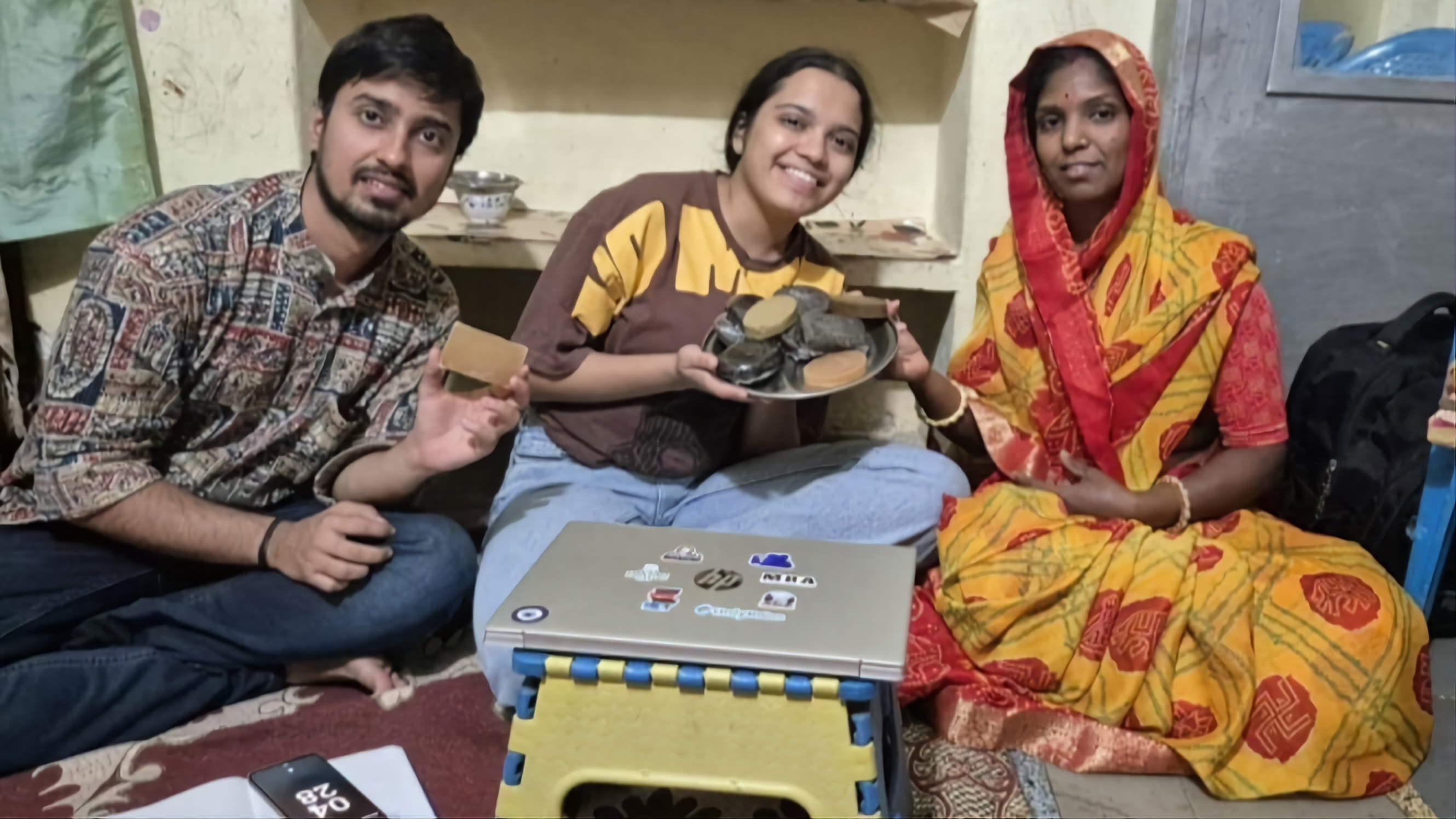
Breaking Barriers with Bubbles: Khusboo Parashar's Organic Soap Business
Click Here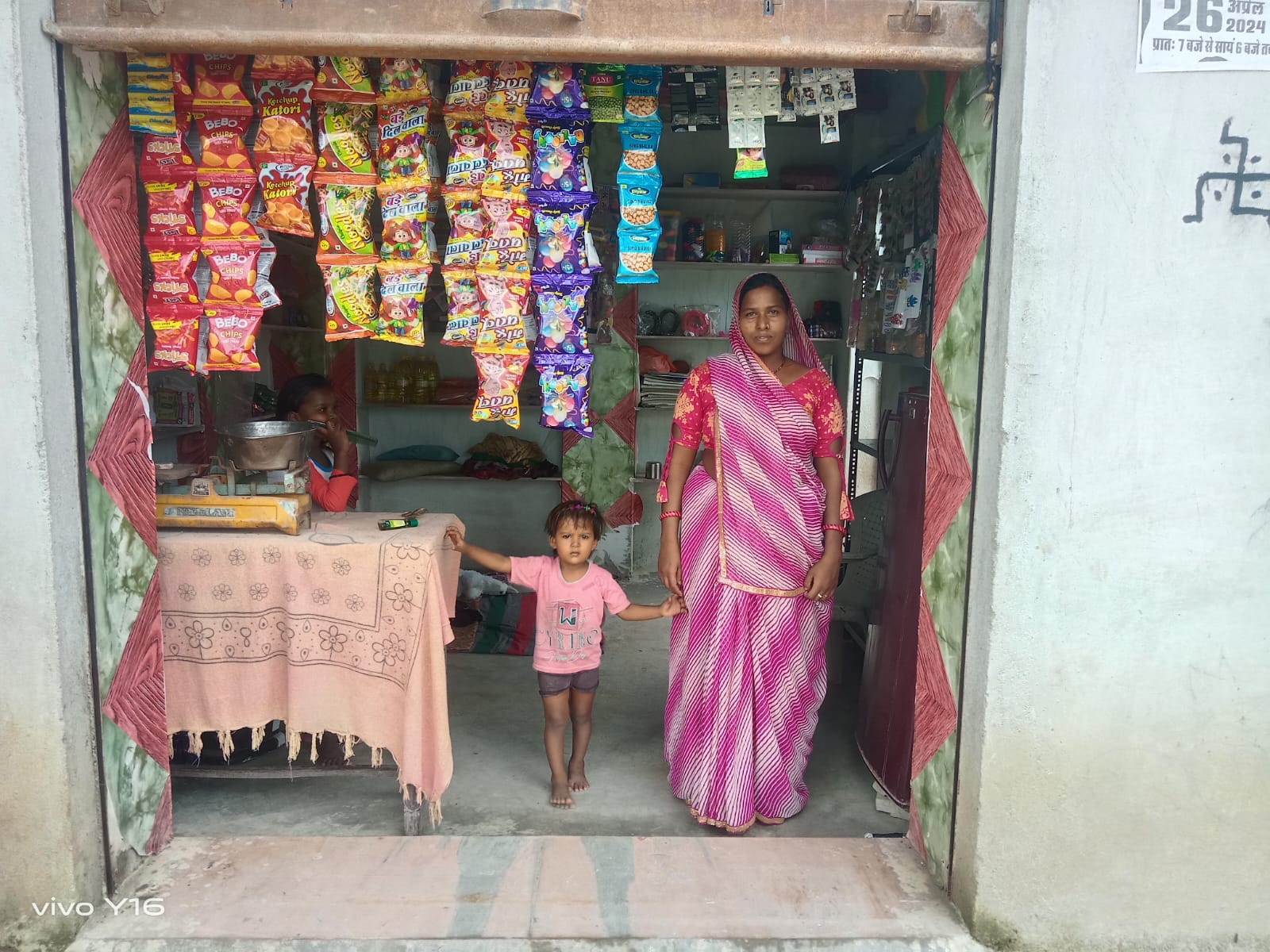
The Unstoppable Shanti Bai: How One Woman Changed Her Destiny
Click Here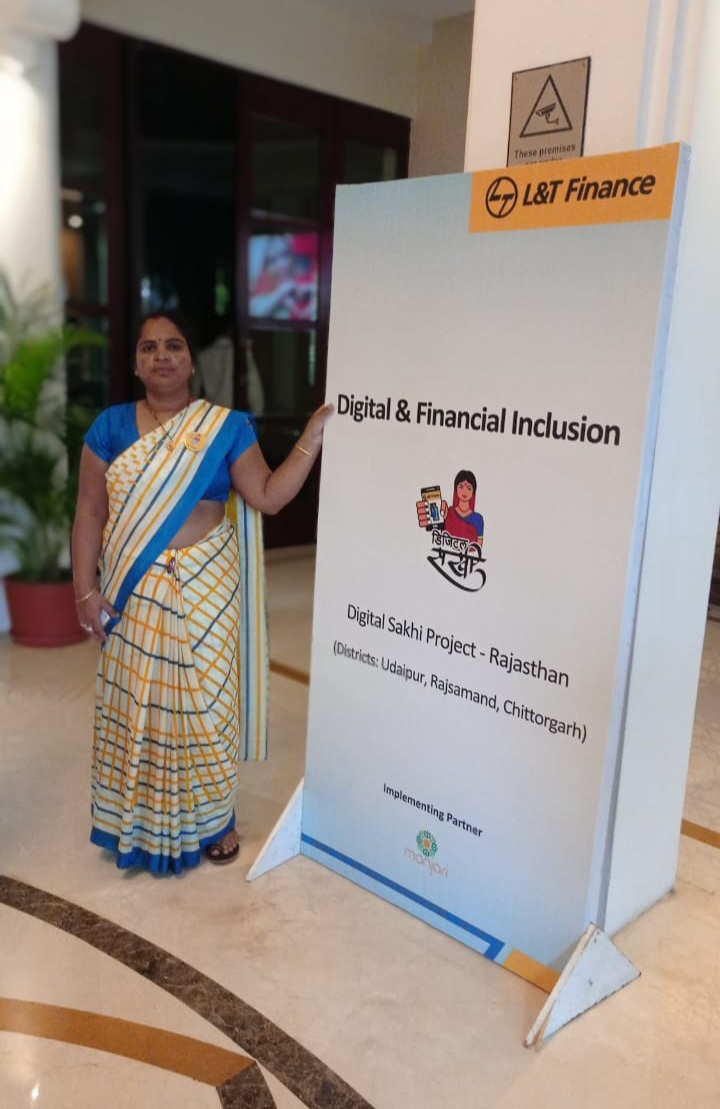
Path to Prosperity: Chandrakala's Powerful
In the quiet village of Turkiyakala, Chittorgarh, a remarkable story unfolds—the journey of Chandrakala Khatik, a woman who transformed struggle into success. Born in 1988 into an educated family, she possessed a sharp mind....
Click Here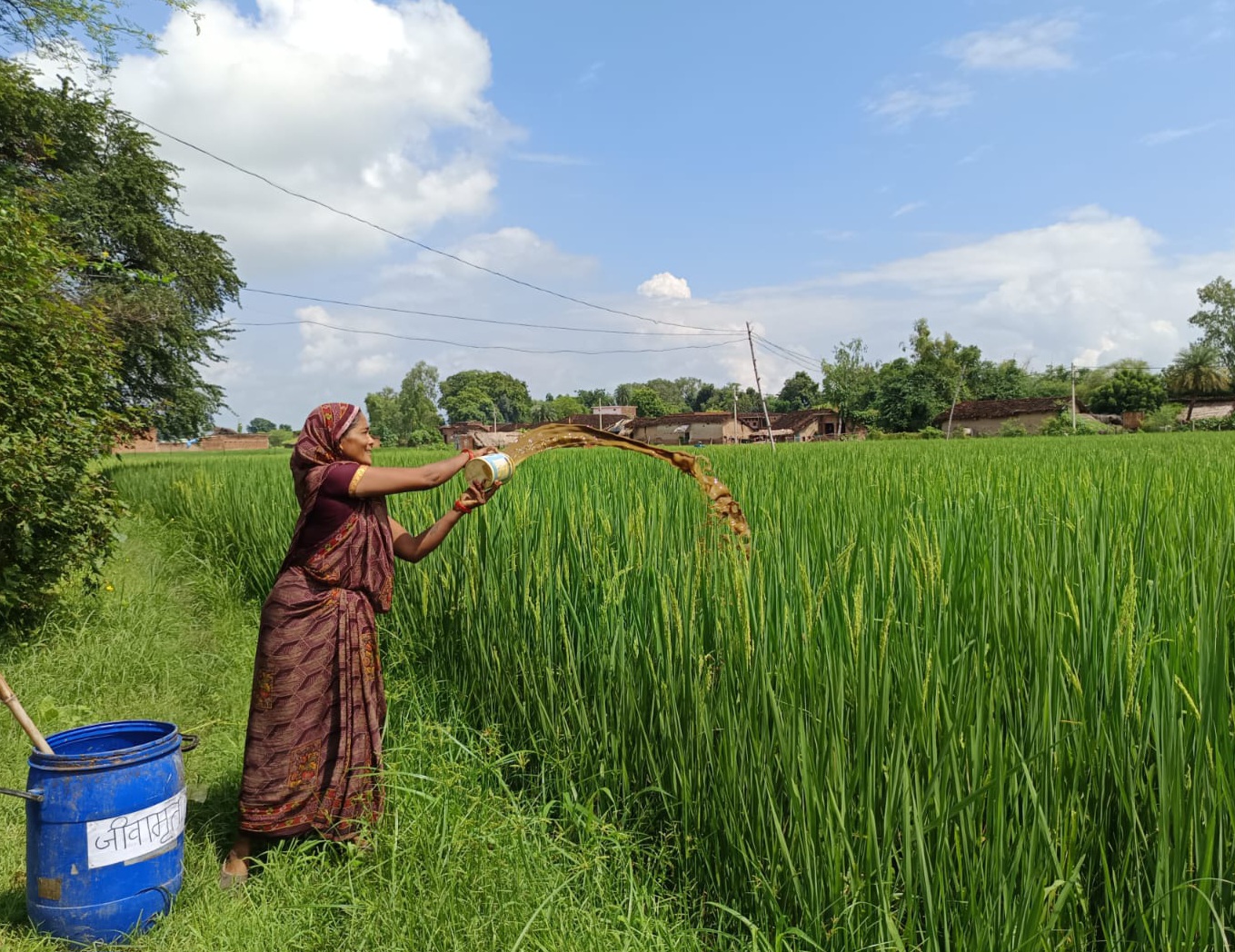
Empowering Rural Women: The Manjari Foundation X Rang De Partnership
Click Here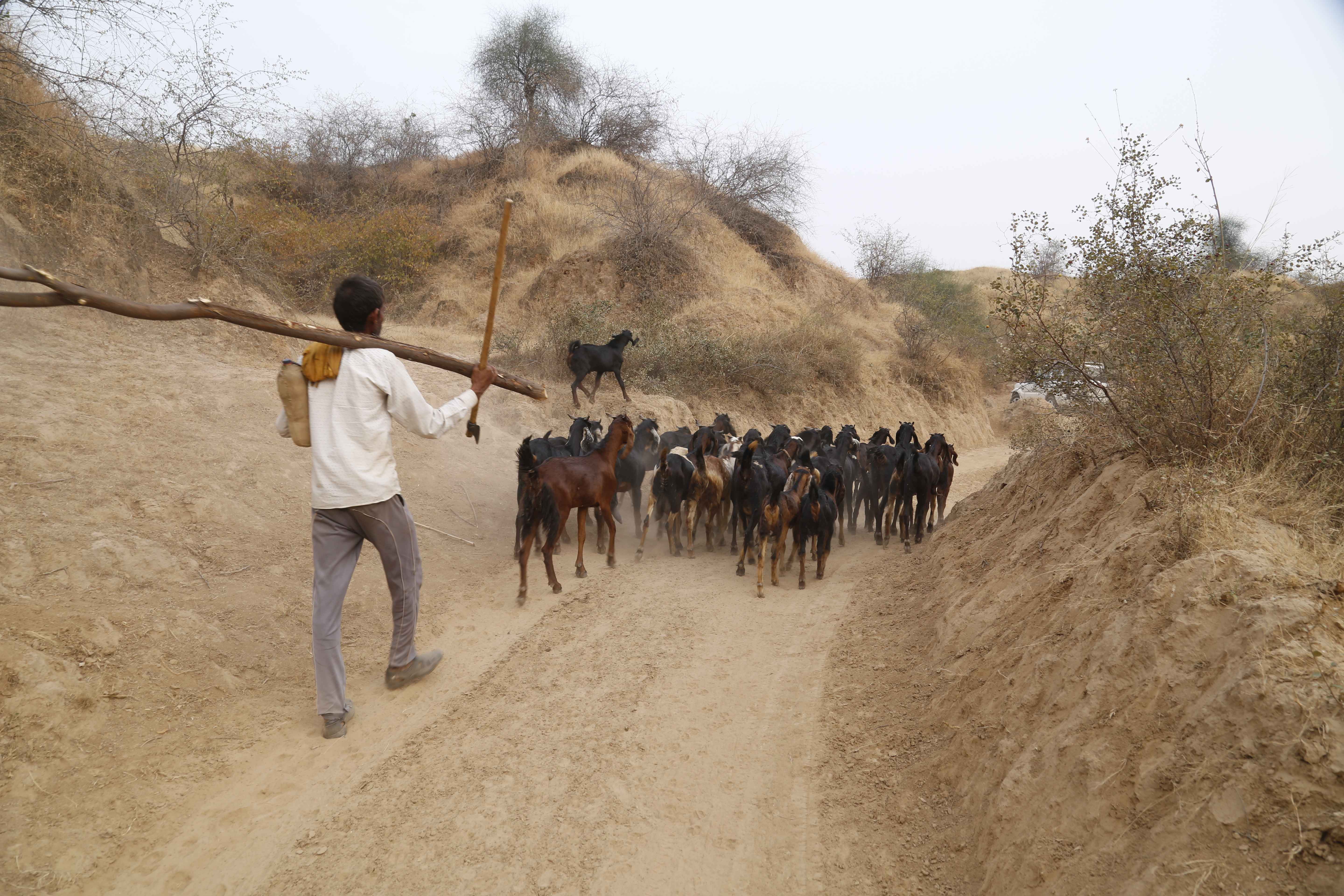
Empowering the Hills: The Transformative Power of Goat Farming
Click Here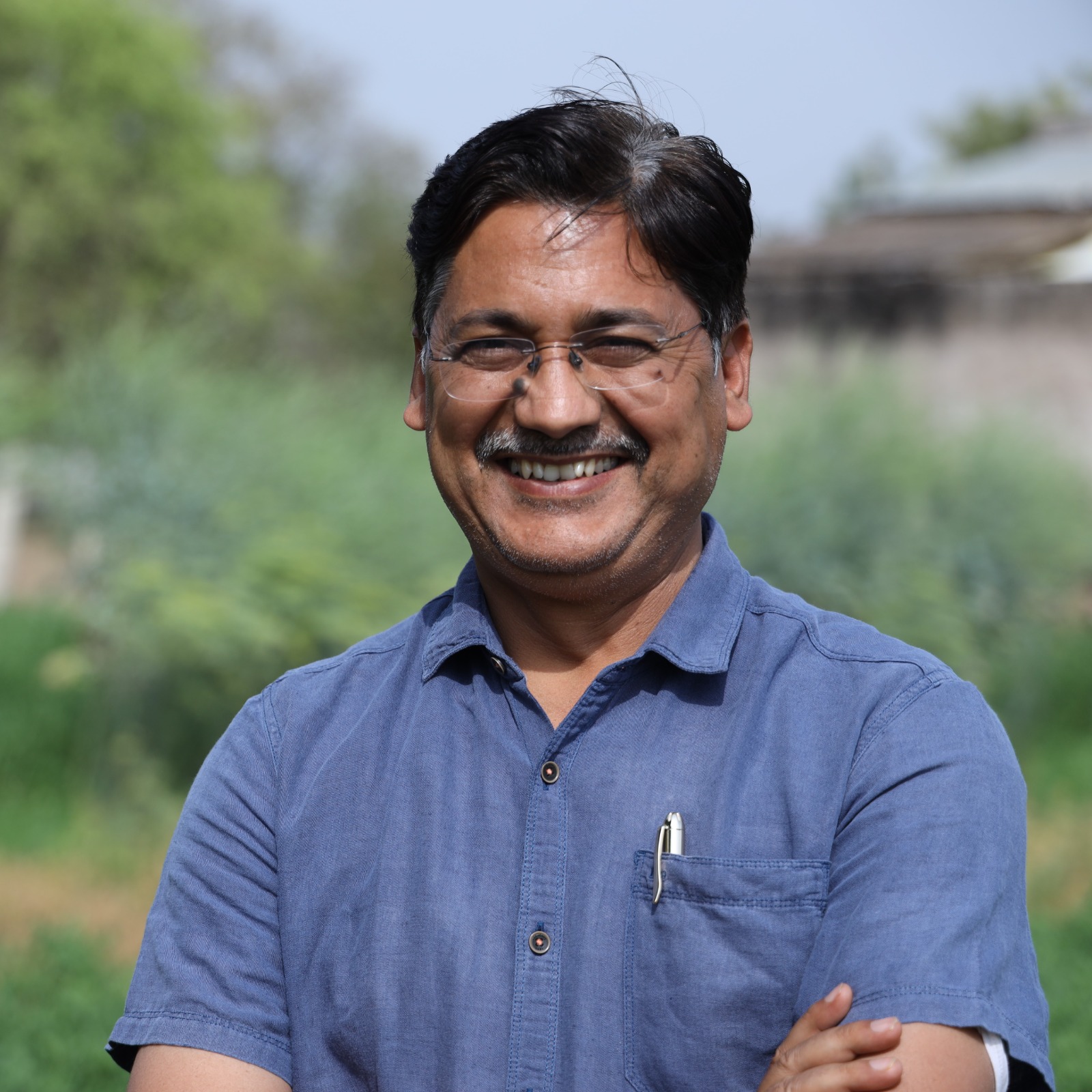
Empowering Rural Communities: Rang De Q&A with Sanjay Kumar
Click Here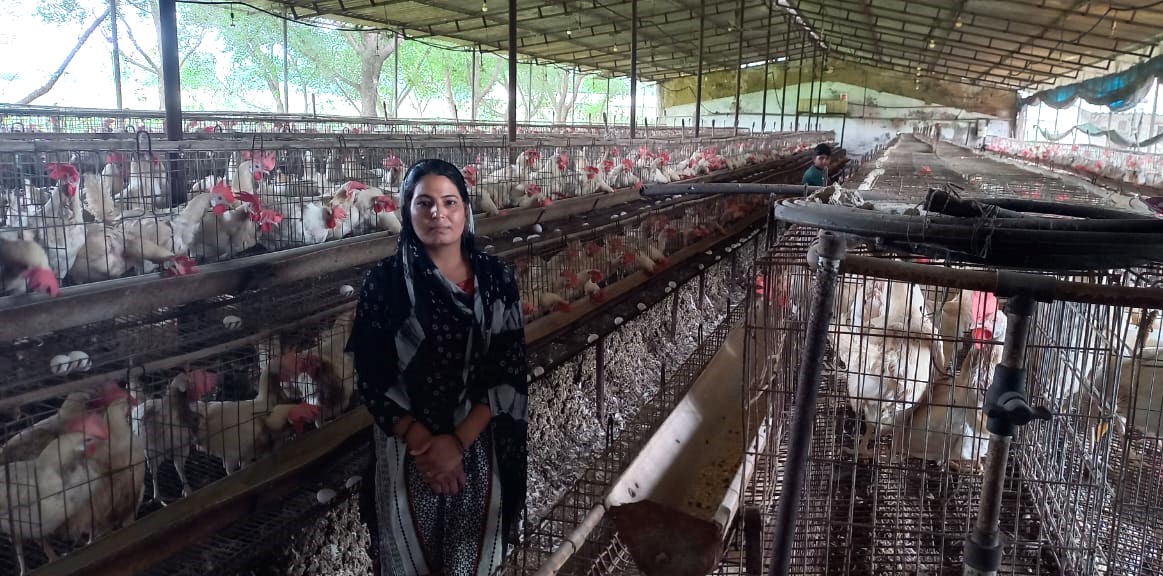
Bucking the Odds: Shahnaj's Goat Rearing Success Story
Shahnaj is an aspiring women member of Self Help Group in Gagwana village of Ajmer district in Rajasthan. The self help groups are being promoted by Manjari Foundation in Sakhi Project. After her marriage, she arrived here as a homemaker living with her husband, children and other family members.
Click Here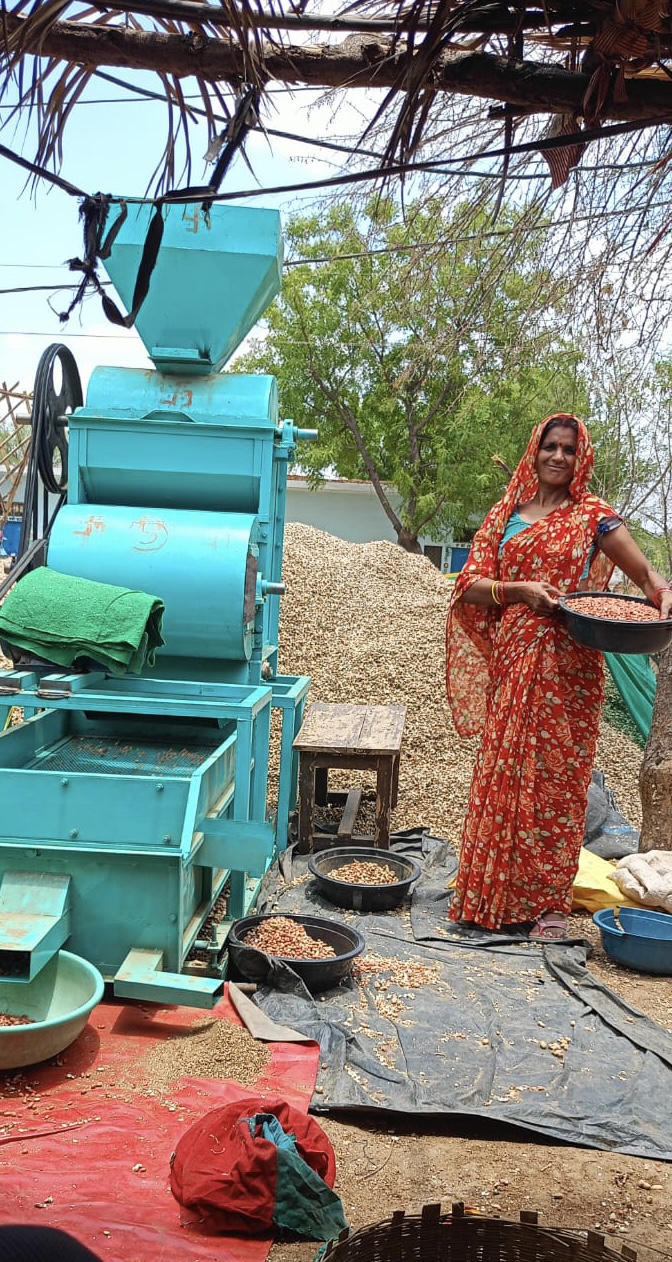
From Fields to Fortune: How Ramkali Rajak Became an Entrepreneur
Ramkali, alongside her husband, toiled on their small piece of agricultural land. Life was manageable when it was just the two of them, but the arrival of three children brought new financial challenges.
Click Here
How Sonu Davar made her daughter’s dream to become an air hostess come true
People often say, 'Dream, because dreams cost nothing.' Everyday in India, countless women are dreaming and making every possible effort to turn those dreams into reality.
Click Here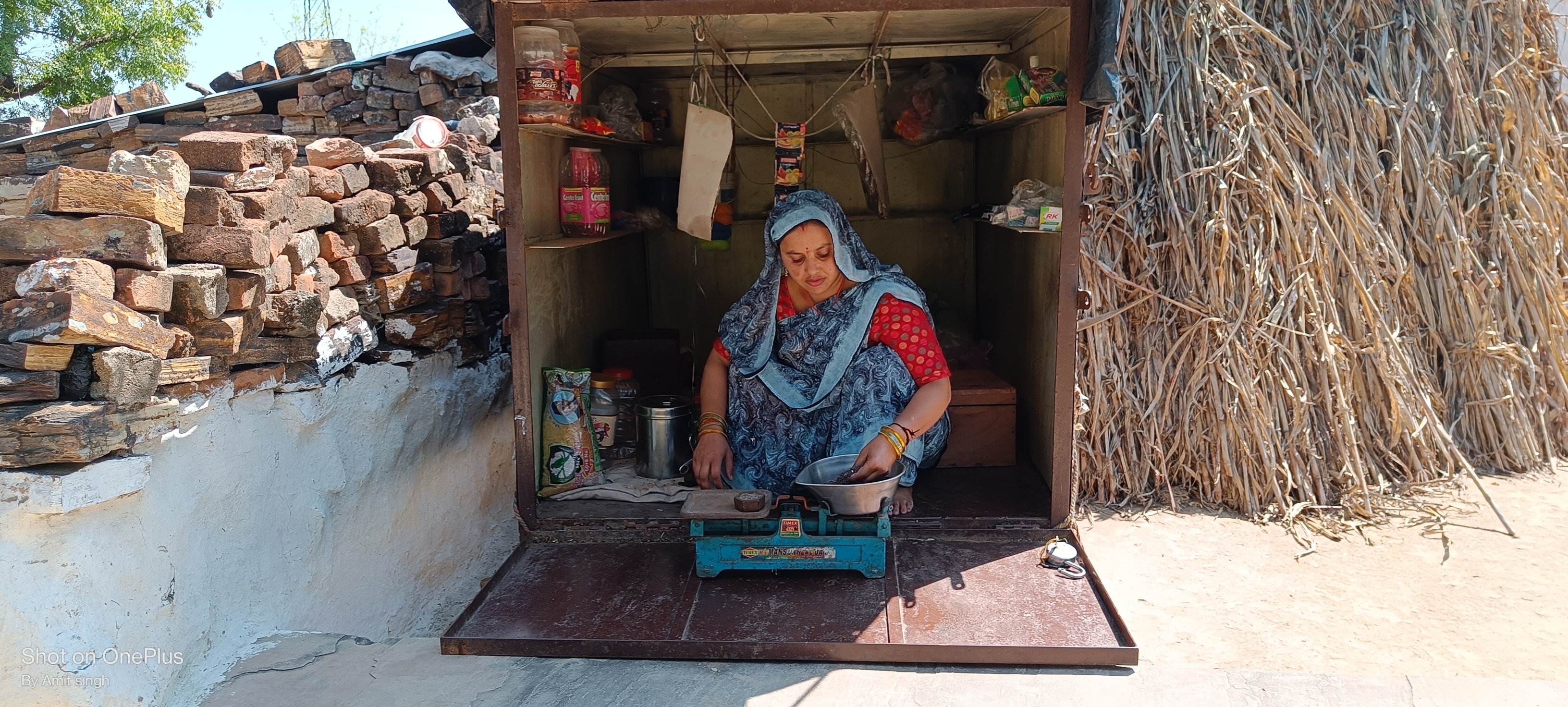
From adversity to achivement Rakhi Sharma's inspirational journey
Rakhi Sharma's journey is a testament to the power of determination and the transformative impact of seizing opportunities
Click Here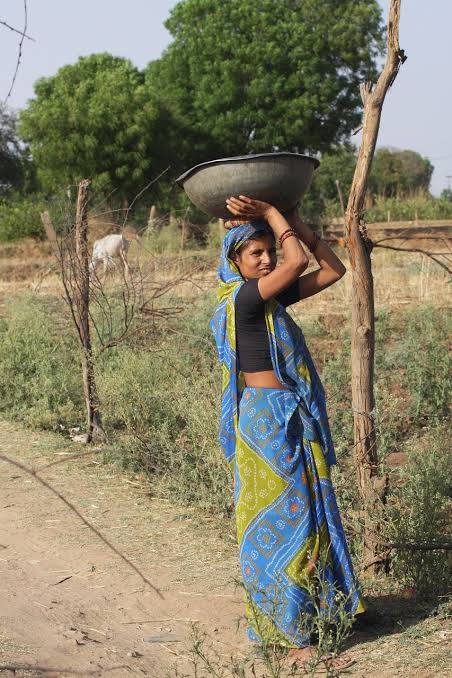
How ‘Kisan Didi’ transformed and strengthened her life by taking a loan from Aajeevika Mission
While India is known as an agrarian country, the struggles and hardships faced by many farming families often go unnoticed. Sunita's family, residing in the small village of Patoora in the Satna district of Madhya Pradesh....
Click Here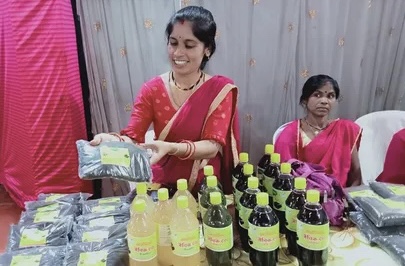
Nandini Mishra's Triumph: From Child Bride to Educator and Mentor
In India, one often witnesses a common occurrence in impoverished households. The insistence on marrying off the daughter is prevalent, treating the girl as if she is a burden. It's as if they eagerly await her turning 18, considering it a milestone for arranging her marriage. In some cases, the situation is so extreme that the girl is married,
Click Here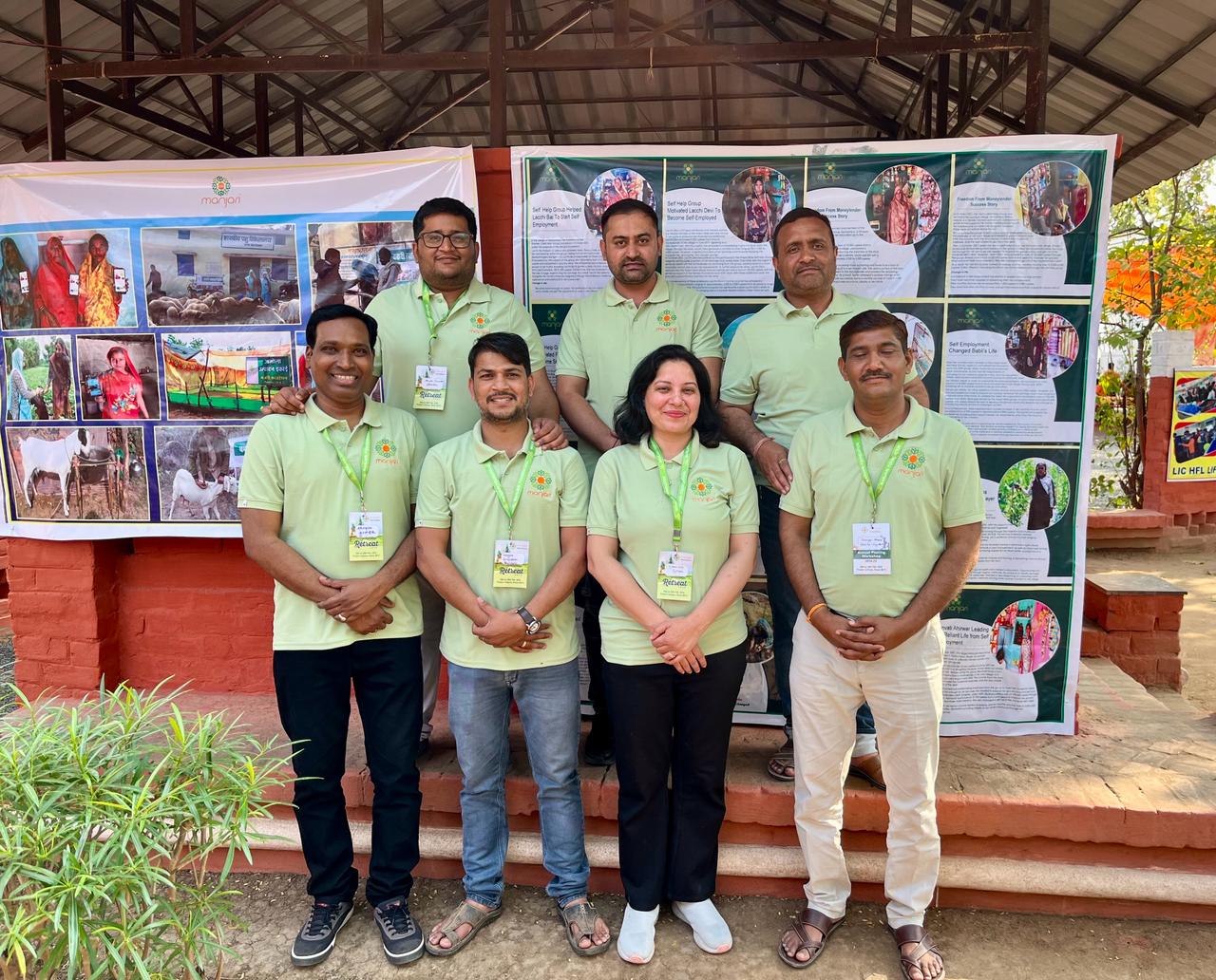
Reflections on Retreat 2024
Ramesh Yadawar from Manjari pens down his experience of Annual Retreat.
Click Here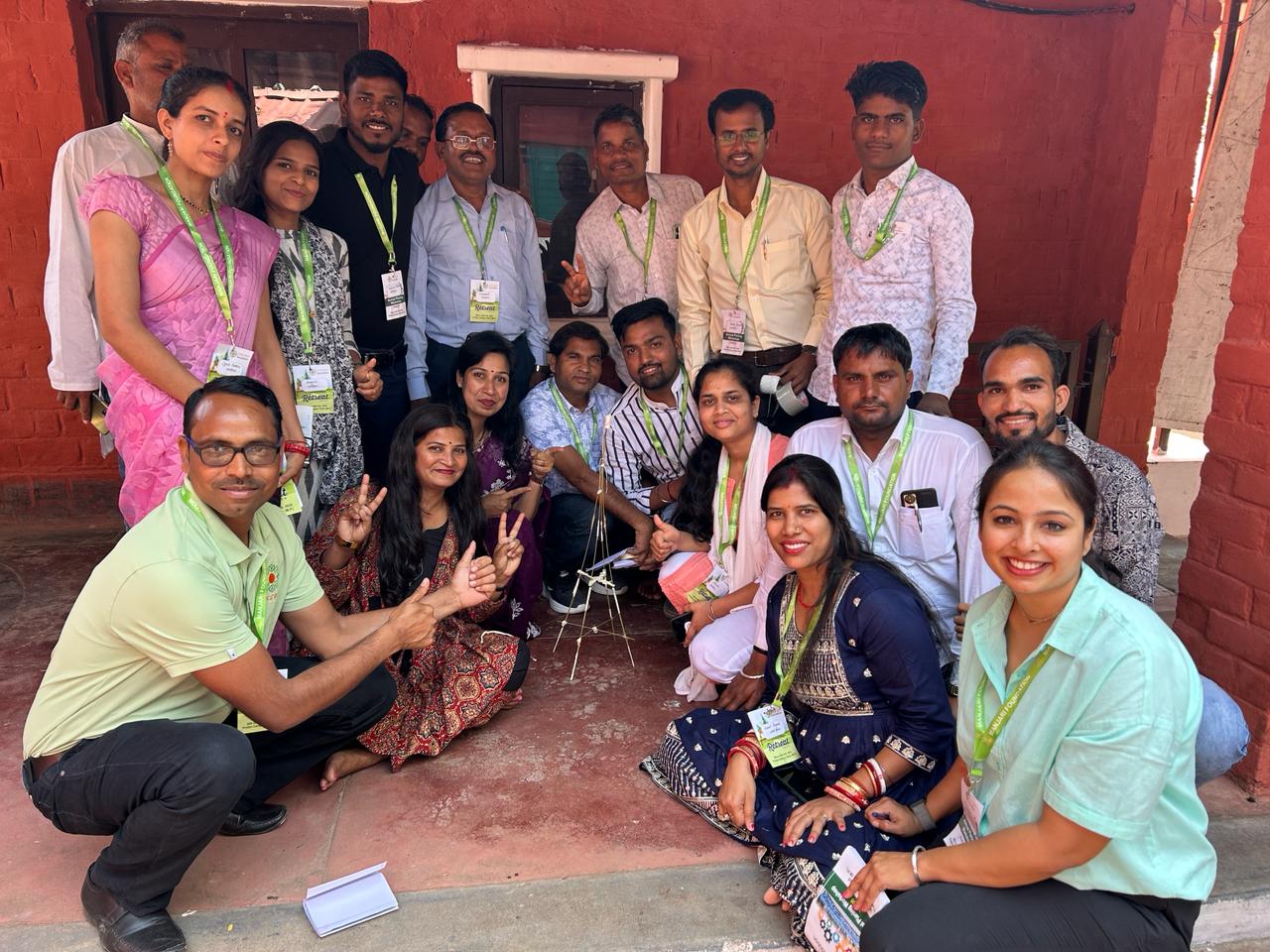
टीम मंजरी की कलम से रिट्रीट के खट्टे-मीठे अनुभव!
टीम मंजरी के विजय रावत और सुबोध गुप्ता द्वारा लिखा गया वार्षिक रिट्रीट का वृत्तांत।
Click Here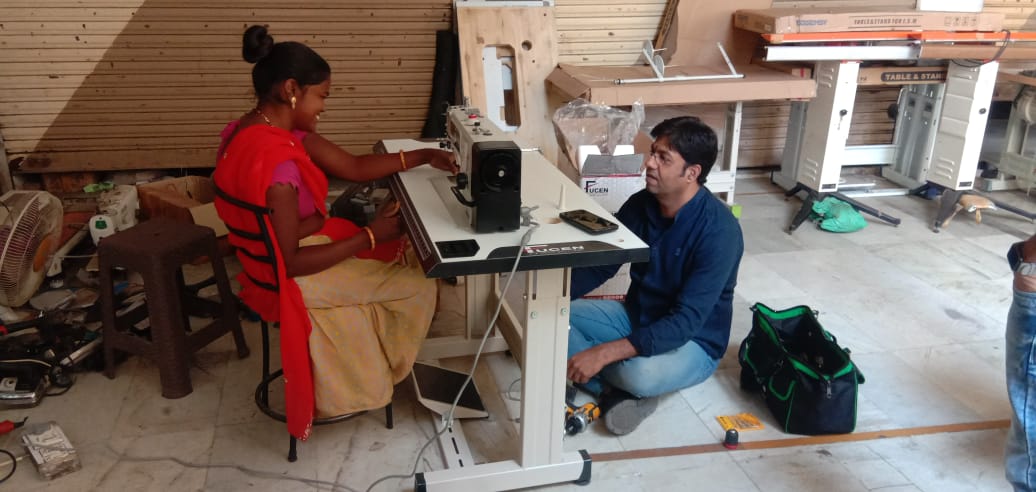
From Adversity to Achievement: Story of a differently-abled entrepreneur
In the serene village of Guddali, nestled in the Kurabad block of Udaipur, resides a remarkable woman, Meera. From a young age, Meera has faced the challenges of physical disability with unwavering determination and resilience.
Click Here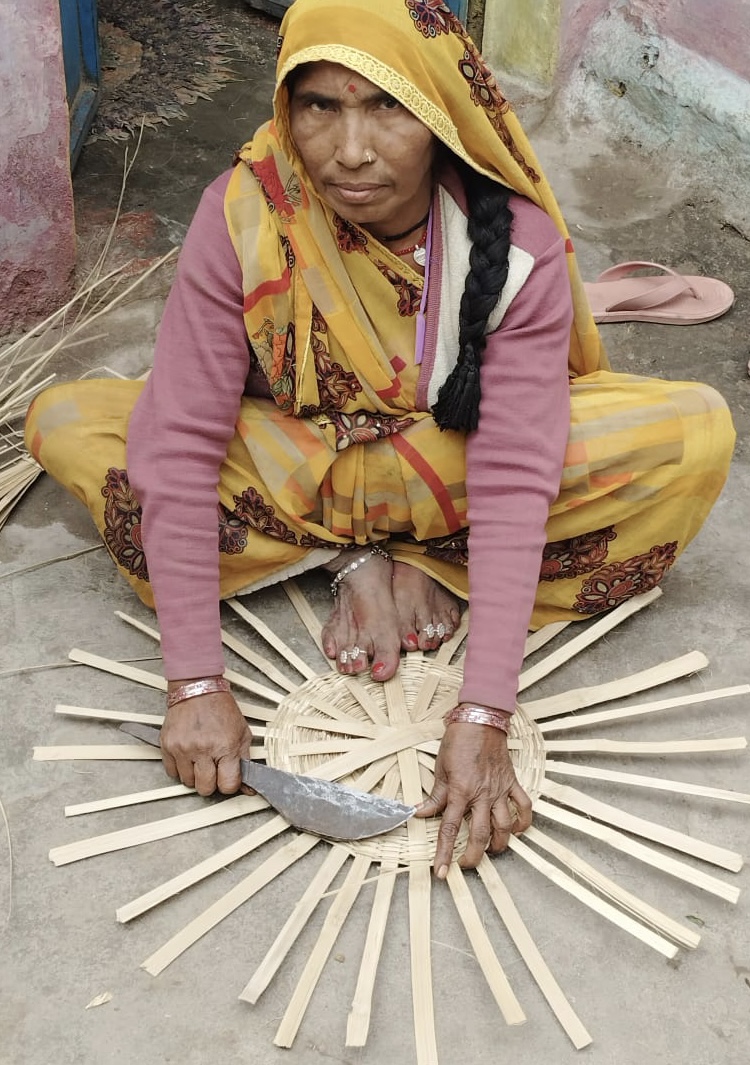
Weaving Dreams: Rajan Bai's Journey with Bagaj Mata Self-Help Group
In the heart of Narayanpur, a village painted with the hues of tradition and aspirations, a remarkable journey unfolded through the Bagaj Mata Self-Help Group, facilitated by the Manjari Foundation in October 2021.
Click Here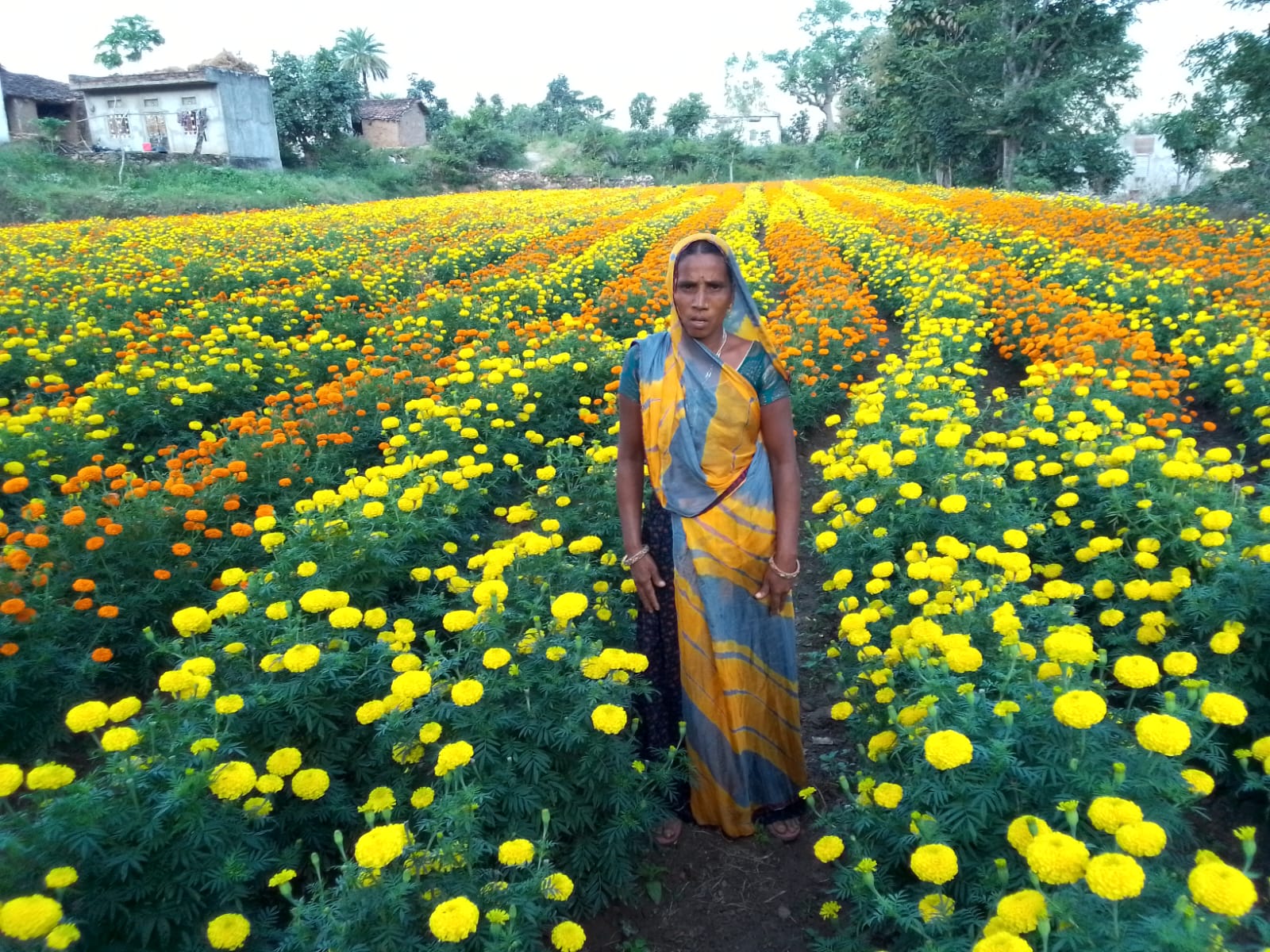
From Seeds to Success: Story of Kamla Bai
Kamla Bai's story is one of resilience, empowerment, and the blossoming of a remarkable entrepreneurial spirit.
Click Here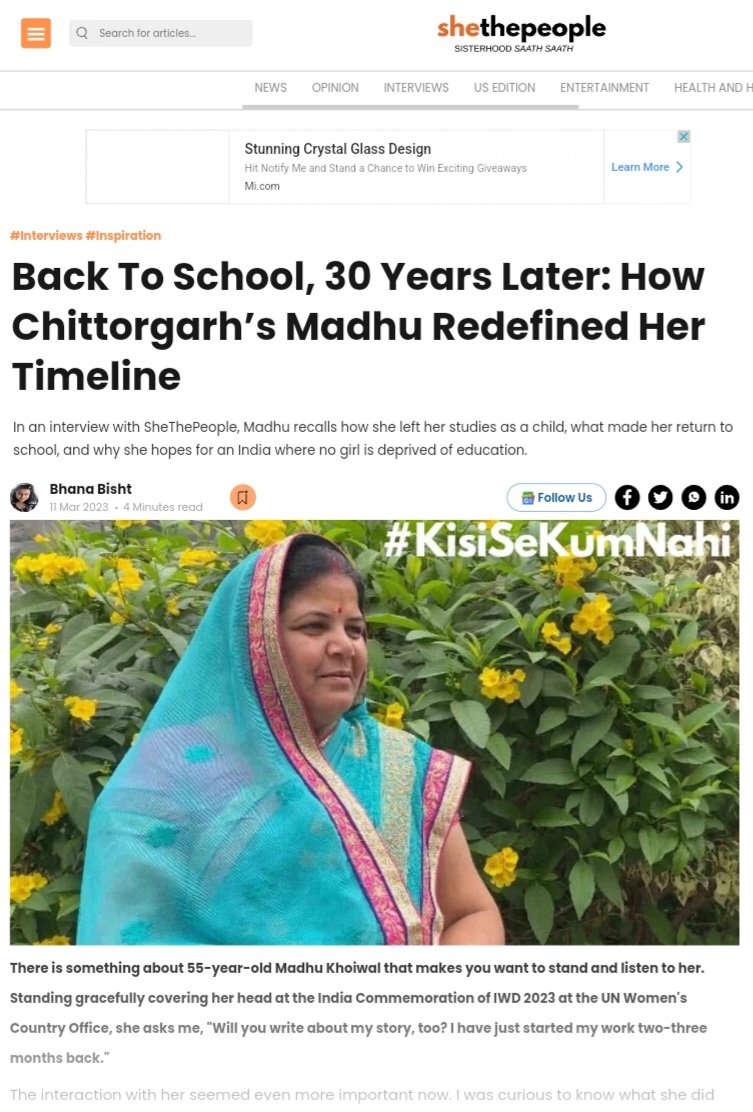
Madhu Khoiwal: From Adversity to Achievement
Madhu Khoiwal, a 55-year-old woman from Rajasthan's Chittorgarh, had a journey filled with challenges and empowerment. Growing up in a village where education for girls was not considered essential, she dropped out of school during the 5th standard.
Click Here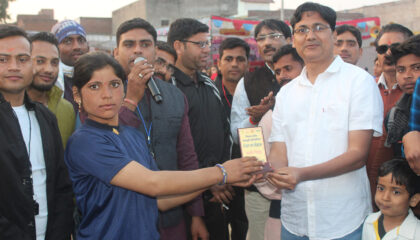
How Neeraj became a proud daughter of the village
With the numerous risks and uncertainties we face today, social security is indispensable for poor and vulnerable families.
Click Here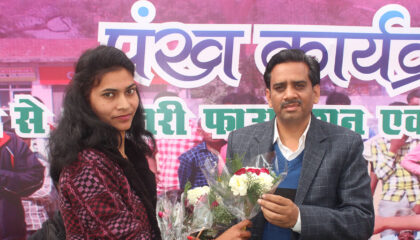
Pankh gives Raviya wings, she becomes a role model for many
119 year-old Raviya belongs to a middle class family in Adampur village in Dholpur district. Her father Laxmi Narayan Lodhi is a farmer and mother Kanta is a housewife. She is the youngest of 4 siblings.
Click Here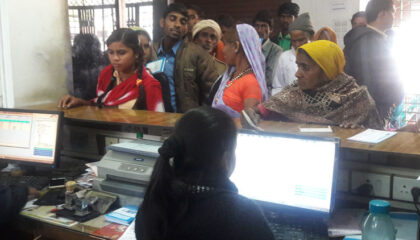
More than 3000 SHG women across our projects are mitigating risk by opting for Government Insurance
The Government has launched various schemes and programmes for the upliftment of the poor but impact...
Click Here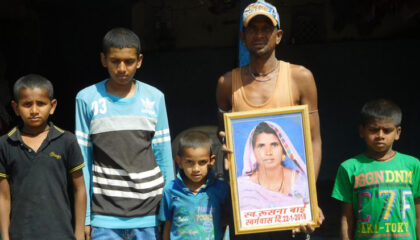
After the sudden death of Rusna Bai, insurance saved the day for Ramesh and family
With the numerous risks and uncertainties we face today, social security is indispensable for poor and vulnerable families.
Click Here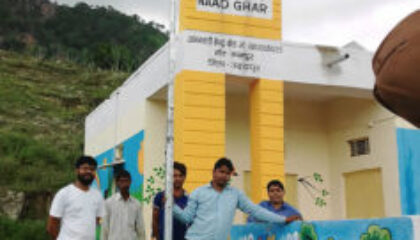
Street lights bring smiles to the people of Kanpur village
Electricity is the most basic that we take for granted. Even today, it is not easily available to many people in rural areas.
Click Here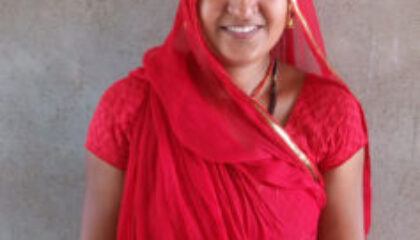
SHGs made me realise the importance of ‘self’
Sushila Devi, a 28-year-old woman from Shivpura village, is a mother of the young boy. Tears roll down her cheeks when she narrates her story. She was very young when she got married.
Click Here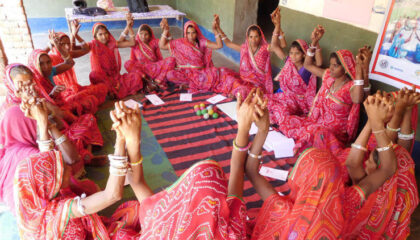
Red sarees – a symbol of empowerment in remote Rawa village
Rawa is a remote village situated in the difficult terrains of Girwa Tehsil. Most men in the village are daily wage labourers.
Click Here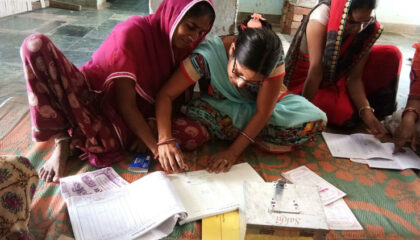
The journey from thumb impressions to signatures
Four months ago, our Sakhi programme reached out to Narpat Ki Khedi, a small village with a conservative...
Click Here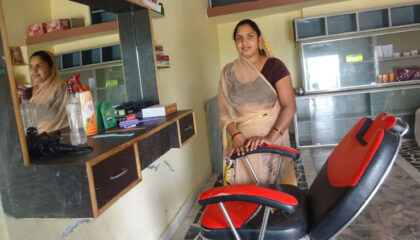
Running Her Own Beauty Salon Had Been A Dream Of Sarda’s Since Childhood
Despite making huge advances in development in our county, women today still face a number of hurdles due to gaping gender gap in the workforce. Only 29% of the women in our country end up joining the workforce..
Click Here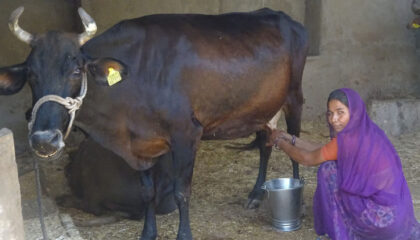
Mohini turns her life around after her husband’s demise
Mohini’s story goes to show that there is no limit to how much one can achieve with strong determination.
Click Here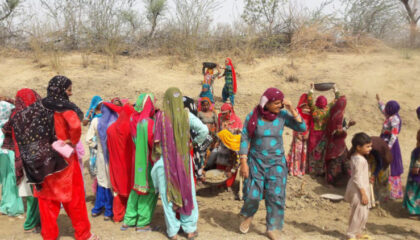
Women get work through MNREGA for the first time in 10 years
The Mahatma Gandhi National Rural Employment Guarantee Act (MGNREGA) is an initiative and social security measure of the government of India, aimed at providing guaranteed employment to rural people in an attept to reduce distress migration from villages.
Click Here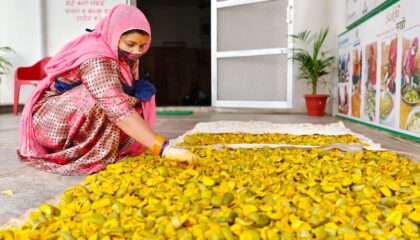
Gudiya defies patriarchy, becomes a working woman
Gudiya Kanwar became a famous name in the pickle unit of Kayad (Ajmer) for a reason. She was a housewife...
Click Here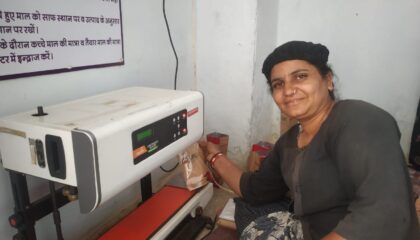
The spice unit gives Radha a new lease of life
Radha Jaat is resident of Chittorgarh’s Monga Ka Khera hamlet. Her husband abandoned her a few years ago...
Click Here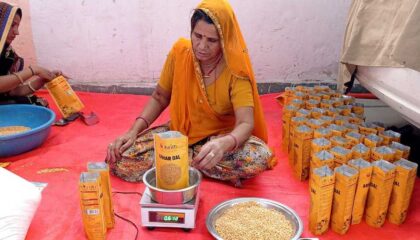
Kanchan earns a livelihood and respect at the pulses unit
Kanchan Vaishav is a native of Bhilwara’s Agoocha Village. She is a 45-year-old woman, who has been working at the Pulses Unit in Agoocha since its inception. Her husband worked as a farmer, but now is confined to the home due to poor health.
Click Here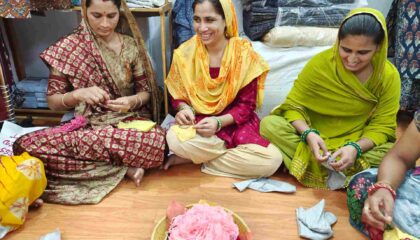
From domestic servant to a skilled tailor
Jamna Khatik is a resident of village Putholi, Chittorgarh. She started working at the textile centre 2 years ago...
Click Here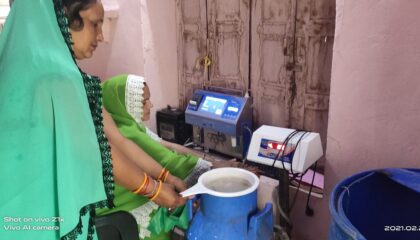
Sadhana – a successful dairy entrepreneur
Sadhana lives in a remote village named Maloni Pawar, 46km away from Dholpur, Rajasthan. She is an active member of an SHG in her village.
Click Here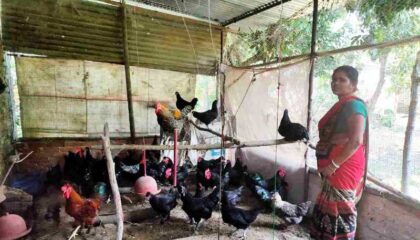
Painting a better picture of rural life
“She is a warrior capable of slaying demons. She is a pioneer capable of choosing her own path. She is a trailblazer capable of achieving new horizons. Just give her some time and see her bedazzle the world.” ― Avijeet Das
Click Here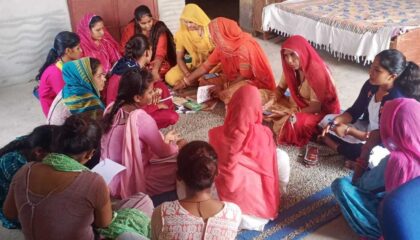
Ashayein – building hope
“Ashayein” is a Hindi word which means “Hope”. Those who manage to have hope regardless of their hardship, are the ones who succeed with flying colours.
Click Here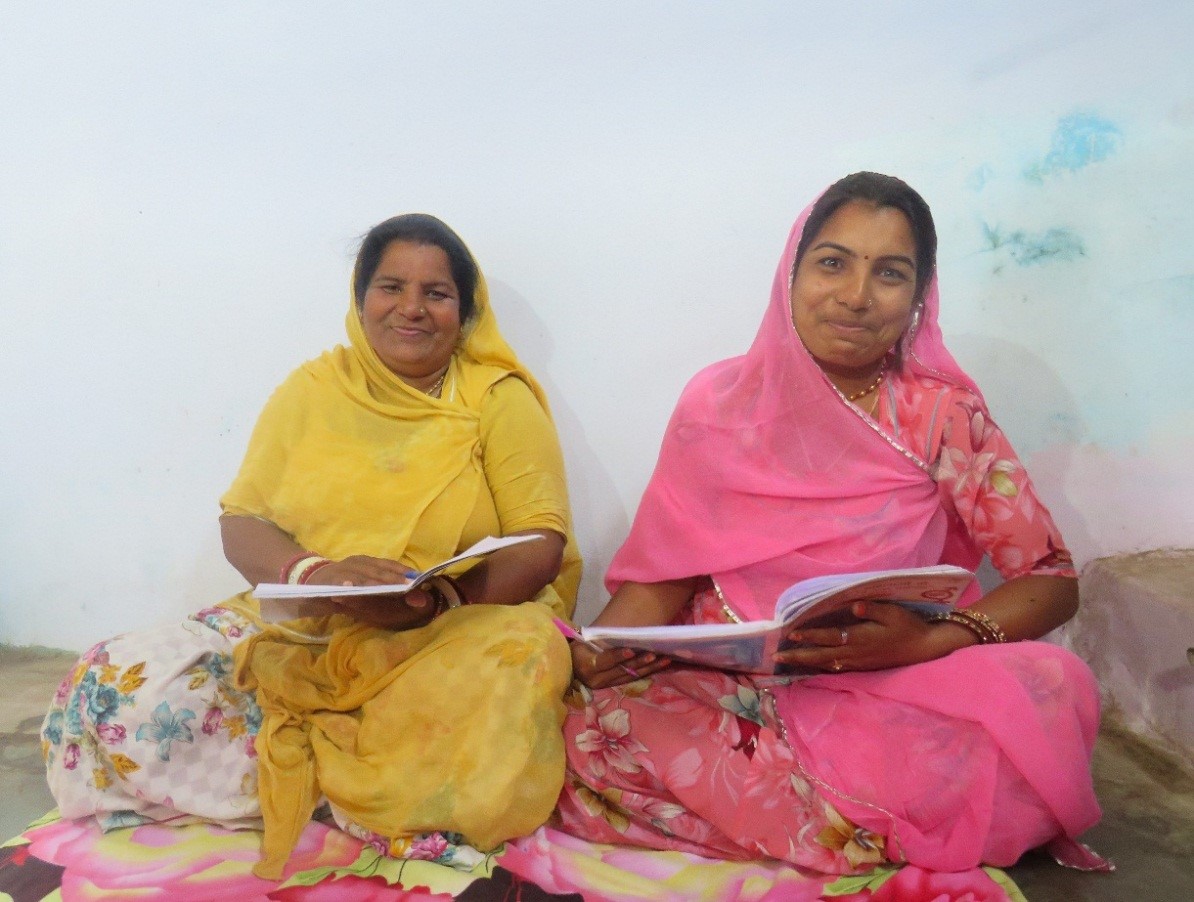
Different Generations, Same Aspiration: A Journey of Determination
The title aptly captures the story of Mamta Solanki and Meena Kanwar, residents of Kishanganj village in the Baran district of Rajasthan. Mamta, 24 years old, is the daughter of Meena Kanwar, 43 years old. Mamta got married to Tanwar Singh five years ago but has since separated from him.
Click Here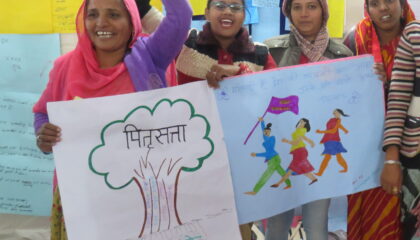
Harbinger of change
As cliché as it sounds, “change is constant”. There are few people who are able to bring change at the grass-root level, and 45 year-old Sangeeta Kunwar is one such women. Hailing from Rolakheda village of Chittorgarh district of Rajasthan, Sangeeta earned recognition in her village for the contribution she made.
Click Here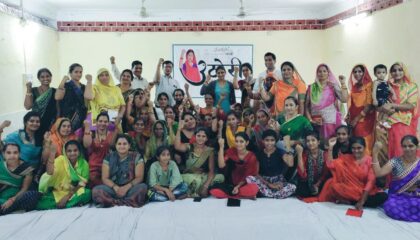
Koshish – a tale of persistance
“Koshish” is a Hindi word that means “to try”. It’s the attitude that ultimately makes all the difference between success and failure.
Click Here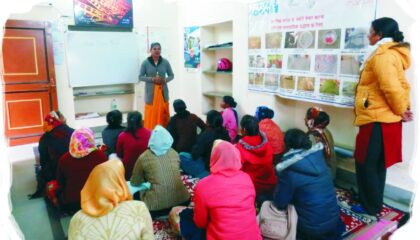
Let’s study again!
The story of 21 year old Paras Salvi speaks for itself. A resident of Rupakhedi village in Chittorgarh district of Rajasthan...
Click Here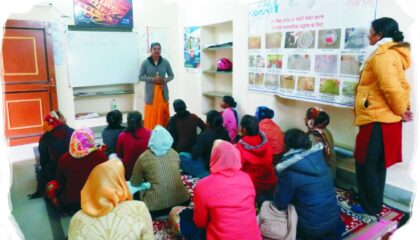
Life gives Savitri a second chance…
Sometimes life gives us a second chance. It’s left upto us to seize the moment and make the most of opportunities that come our way.
Click Here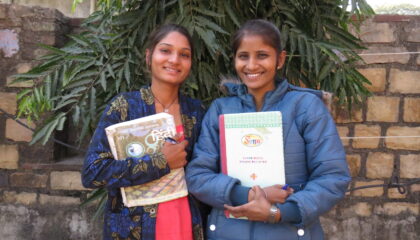
School chali main: Vimla's Journey to Empowerment
“SCHOOL CHALI MAIN” in Hindi translates to mean “I am going to school”. The sentence signifies the happiness of Vimla Salvi, a 27 year old from Rupakhedi Village in Chittorgarh District of Rajasthan.
Click Here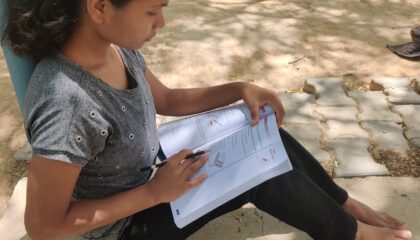
Setting the ball rolling…
The Second Chance Programme implemented by Manjari Foundation and supported by Pradan and UN Women has set the ball rolling for several women like Promilla Karmakar.
Click Here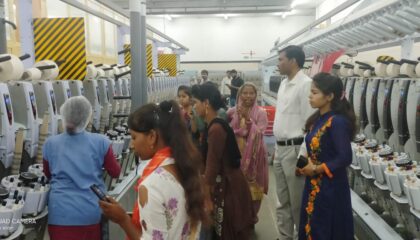
Sui-Dhaaga: Stitching a Path to Empowerment
“Sui-Dhaaga” is a popularly used Hindi word, which means needle and thread. Sewing as an activity has ensured employment for millions of people across the globe.
Click Here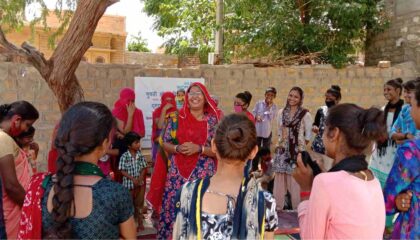
When I met myself
“STRONG STRONGER STRONGEST” represents a transition in the life of a rural woman...
Click Here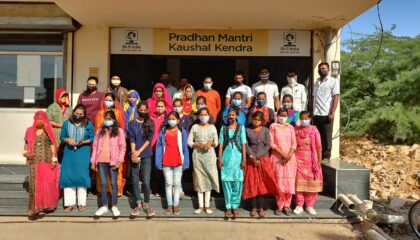
Strong, stronger, strongest: A tale of Resilience and Empowerment
The title “STRONG STRONGER STRONGEST” represents a transition in the life of a rural woman that is straddled with hardship.
Click Here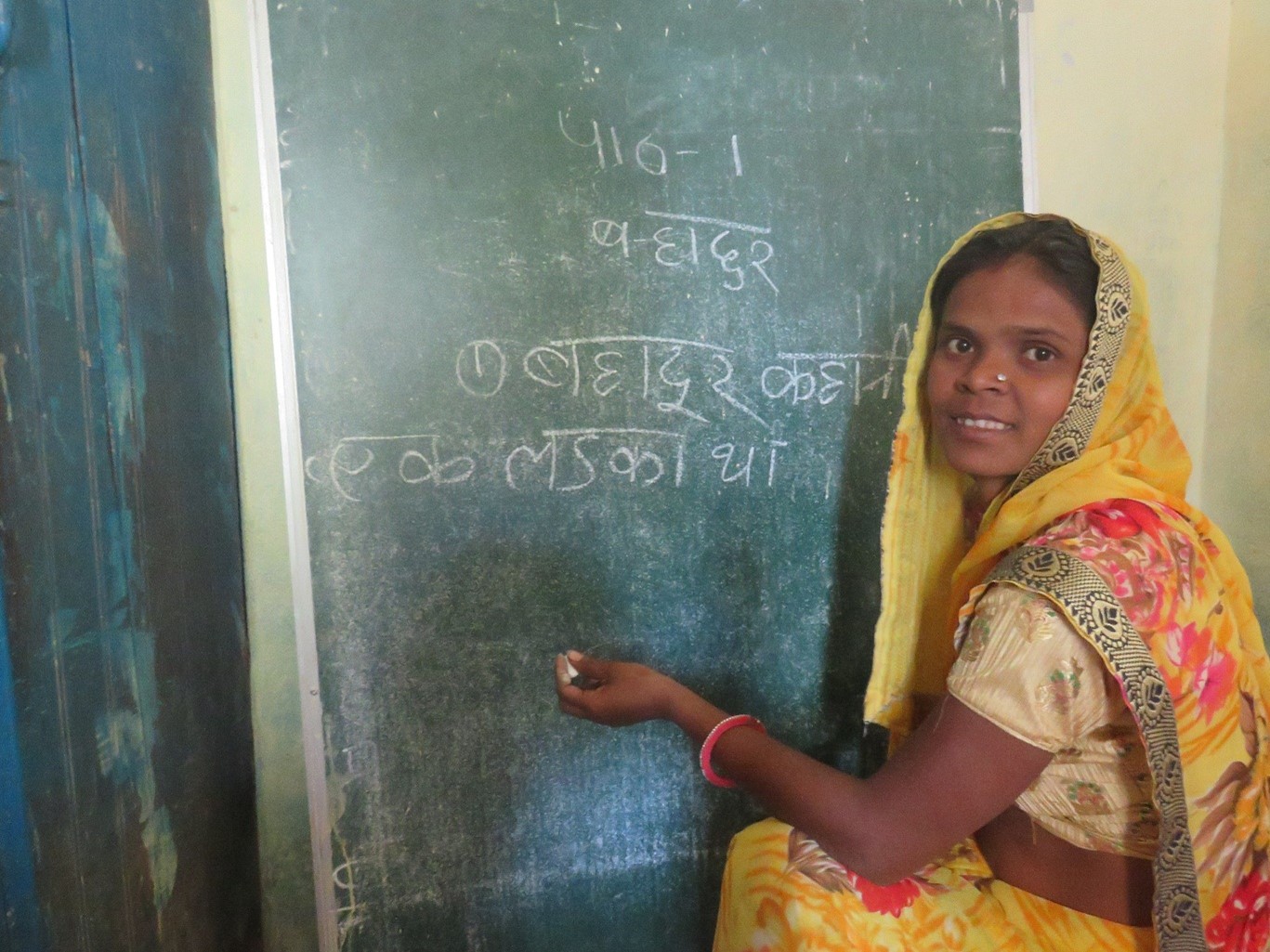
A little goes a long way
There have been numerous instances where minor efforts have resulted in larger results. We plant trees in gardens, on property, and elsewhere these days in the hope that global warming challenges can be handled in the future.
Click Here